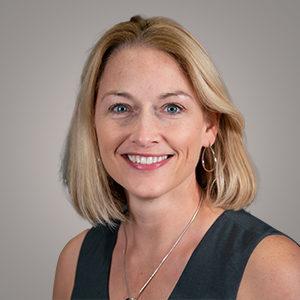Thoughts on Attainable Housing
 Guest blogger: Kerri Ervin, MJ, MS, Chief Compliance Officer at Avow
Guest blogger: Kerri Ervin, MJ, MS, Chief Compliance Officer at Avow
LCF Alumni Association: Thoughts on Attainable Housing
Most people who cook and serve your food, take your blood work, or check you out at the store are shut out from living in Collier County, giving rise to a lifestyle change for all who come to the area. Yesterday I attended the “Leadership Collier Foundation Alumni Association Leadership Lunch” session, Advancing Attainable Housing for all in our Community, via Zoom. Like many others, I was busy trying to complete tasks and stretch my time; however, this is an important topic I made sure to fit onto my calendar. I’m vested in finding a solution to this ongoing issue in Collier County As a registered nurse, I, too, am an essential worker. Attainable housing is a topic I have long considered and been affected by. Working and living in Collier County for almost 20 years, my kids have gone through school here, and my career has been spent caring for people in this community. If I had to find housing tomorrow, I’m not sure I could continue to live in Collier County. In fact, the reason I was so busy at the time of the lunch was partly because it is so hard to attract workers to the area. We are all attempting to hire the same individuals or recruit workers to move here. Over and over, employment offers are declined because workers cannot find affordable housing. Instead of staying or moving here, these essential workers choose another, more affordable area to live and work. Over time, this erodes the very lifestyle we’re used to and hope to attain.
When the session started, I was uplifted to see 60 or more fellow alumni in attendance. The session wasn’t doom and gloom; it was a call to action, providing attendees information on how we can work together to reverse the trend, which is critical to ensuring the health and wellbeing of Collier County. Stephen Hruby – Architects Unlimited / Collier County Affordable Housing Advisory Committee, Steve Kirk – Rural Neighborhoods, Golden Gate Project, and Michele Hylton-Terry – Executive Director, Fort Myers Community Redevelopment Agency provided attendees with information to develop our own elevator speeches, and become advocates within our organizations and community to effect change. In fact, Mr. Hruby expressed that change will require the will of advocates and the community. We must be engaged. We need to recognize the problem and the assets, resources, and time it will take to solve this problem. Be vocal, be an advocate, be an influencer.
I hadn’t considered some of the side effects of inadequately addressing the housing crisis. Some are easy to see, and we are affected by them daily. Longer wait times at restaurants, longer lead time to book lab or doctor appointments, and difficulty filling open positions at work, to name a few ways the lack of affordable housing affects local businesses. Others are less obvious on the surface, and I hadn’t truly considered the impact. For example, roads. If we fail to invest in housing, more money is spent on roads. More interchanges are needed, which cost hundreds of millions of dollars. When workers cannot afford to live in the community they work in, they live further away and commute until they quit and find work closer to home. The Collier County Community Housing Plan from 2017 stated it this way, “Their daily commutes from neighboring counties add to the traffic congestion on the roadways and diminish quality of life and active citizen participation.” More workers commuting contributes to congestion on the roads, leading to the need for more roads and overpasses to be built. Money is diverted from affordable housing to pay the cost of building roads. For 2021 and 2022, the Florida Department of Transportation is spending $2.5 billion for highway construction of 210 new lane miles. It’s not less expensive in the long run.
Ms. Hylton-Terry discussed some of the exciting things happening in Fort Myers to enhance affordable housing programs and chip away at the issue. One of the programs she spoke about is a reverse loan program that allows smaller developers to participate in a mentoring program where they receive a loan to develop property in an area the money was generated from and have 24 months to repay the loan. That money is then reinvested in the next developer. The developers must make the properties affordable for a certain period of time. Timeframes ranged, but discussion of 10-50 years was brought up throughout the session.
How can we be vocal? Take an aggressive and active role to amplify the need. It is nearly impossible to catch up on affordable housing. Continue your education on the topic and: prepare your elevator speech; discuss how your business can be a part of the solution; consider attending commission meetings. The Greater Naples Chamber President and CEO Michael Dalby did a great job of explaining this in his chat comment stating, “The best speeches note real-life examples of the negative impact of the lack of affordable housing – staff or employed friends leaving due to increased rents or lack of housing, hiring challenges, etc.”
Where can we find information on the issue and what community needs are and gather facts? The 2017 the Collier County Community Housing Plan. https://www.colliercountyfl.gov/home/showdocument?id=74936
Collier County Community Land Trust: https://collierclt.org/
By Red Gamso | Feb 24, 2022 | Guest Blog
Ready to get Started?
Leadership Collier Foundation is a website to help students, employers, and LCF Alumni connect for opportunities for growth. Register for a free profile to get started today.
RegisterSource: National Association of Colleges and Employers
